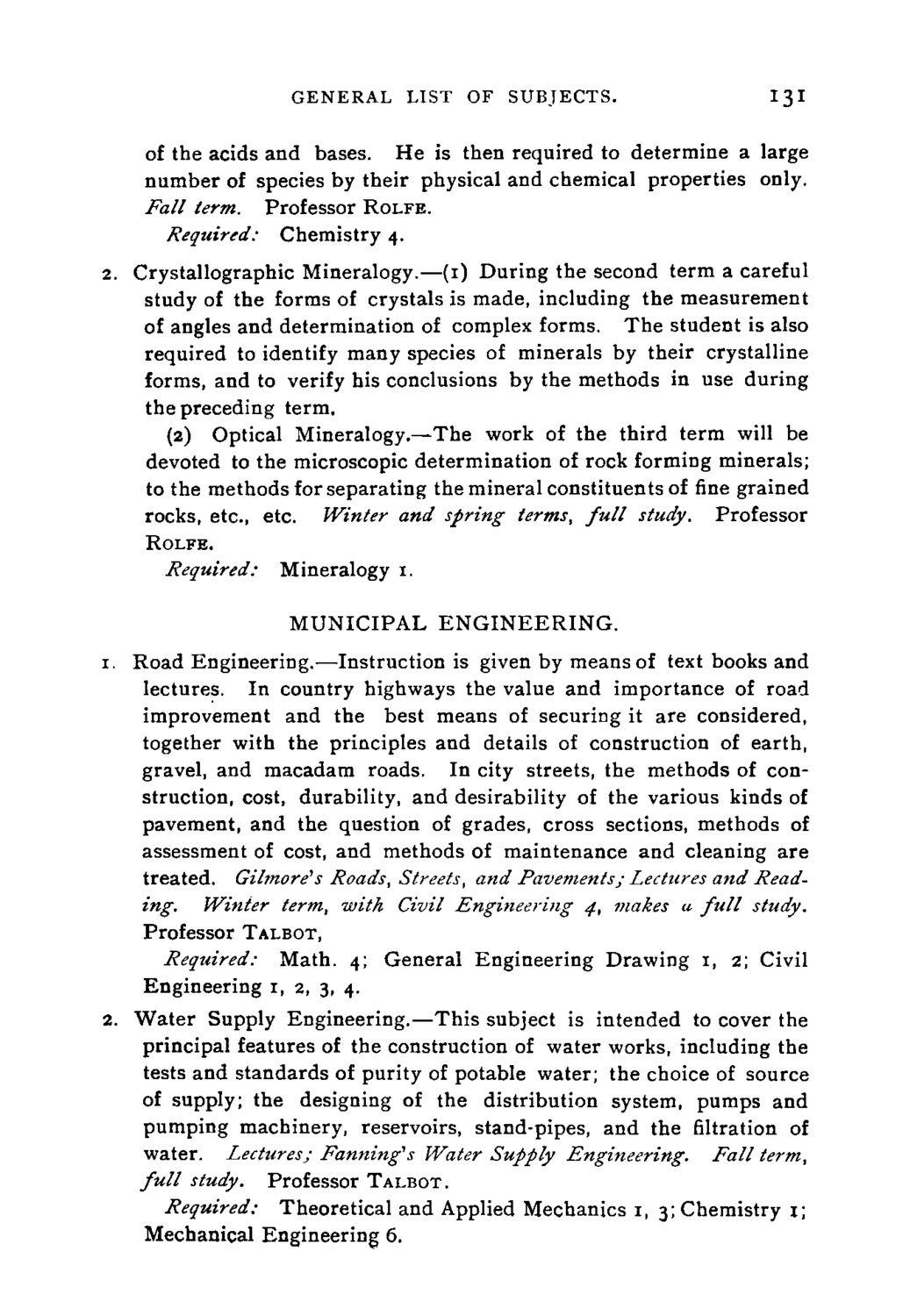| |
| |
Caption: Course Catalog - 1893-1894
This is a reduced-resolution page image for fast online browsing.

EXTRACTED TEXT FROM PAGE:
GENERAL LIST OF SUBJECTS. I3I of the acids and bases. He is then required to determine a large number of species by their physical and chemical properties only. Fall term. Professor ROLFE. Required: Chemistry 4. Crystallographic Mineralogy.—(1) During the second term a careful study of the forms of crystals is made, including the measurement of angles and determination of complex forms. The student is also required to identify many species of minerals by their crystalline forms, and to verify his conclusions by the methods in use during the preceding term. (2) Optical Mineralogy.—The work of the third term will be devoted to the microscopic determination of rock forming minerals; to the methods for separating the mineral constituents of fine grained rocks, etc., etc. Winter and spring terms, full study. Professor ROLFE. Required: Mineralogy 1. MUNICIPAL ENGINEERING. Road Engineering.—Instruction is given by means of text books and lectures. In country highways the value and importance of road improvement and the best means of securing it are considered, together with the principles and details of construction of earth, gravel, and macadam roads. In city streets, the methods of construction, cost, durability, and desirability of the various kinds of pavement, and the question of grades, cross sections, methods of assessment of cost, and methods of maintenance and cleaning are treated. Gilmore's Roads, Streets, and Pavements; Lectures and Reading. Winter term, with Civil Engineering 4, makes a full study. Professor TALBOT, Required: Math. 4; General Engineering Drawing 1, 2; Civil Engineering 1, 2, 3, 4. Water Supply Engineering.—This subject is intended to cover the principal features of the construction of water works, including the tests and standards of purity of potable water; the choice of source of supply; the designing of the distribution system, pumps and pumping machinery, reservoirs, stand-pipes, and the nitration of water. Lectures; Fanning'1 s Water Supply Engineering. Fall term, full study. Professor TALBOT. Required: Theoretical and Applied Mechanics 1, 3; Chemistry i; Mechanical Engineering 6.
| |